- Home
- Lynne Reid Banks
Two Is Lonely Page 9
Two Is Lonely Read online
Page 9
‘If you mean, is there some sort of ethic behind it all, pacificism or anarchy or something of the sort, the answer’s no. Chris wouldn’t be caught dead banning the bomb, it’s much too much like work and far too un-exclusive—he’s a bit of a snob in his own warped way, not about class but about intellect. He actually puts people through a sort of Mensa test before he lets them join his soggy company.’ He sat back with his face grim. ‘No, there’s very little snap, crackle or pop about our product. He just lies there. Immersed.’
‘Nevertheless, I’d like to meet him.’
He brightened a little. ‘Would you really?’ Then he lapsed into gloom again. ‘Oh, it’d be fatal. Put you right off me. It must. None of us can escape this deep-rooted belief that parents are to blame for their children’s aberrations. One look at Chris would put a fast blight on any notion you might have of being the mother of my next.’
I gave a startled laugh.
‘You don’t want to,’ he said, just as he had about Glyndebourne.
‘Well—I’ve nothing against it in theory—but I’m thirty-six—’
‘So what?’
‘And there’s David to consider.’
‘Ah yes. David.’ We’d both finished eating and he was holding my hand on the table-cloth. ‘We’ve talked about my failure as a parent, now let’s talk about yours.’
This startled me considerably more. ‘Have I failed?’
‘Failure of some degree is the natural concomitant of parenthood,’ he said. ‘How far you’ve failed, of course, is for you to say. I’ve never met a parent with the face to claim he’d actually succeeded, and I don’t see how anyone in your situation could claim it.’
Cautiously I asked, ‘How do you mean, my situation?’
‘Not remarrying. Your failure to provide David with a new father is surely a considerable black mark against you. I wasn’t widowed until Chris was fourteen, but I blame myself heartily for not remarrying almost at once. The fact that at this moment I’m thanking God I didn’t,’ he added, smiling tenderly at me, ‘doesn’t exonerate me. I was too selfish to even attempt to marry one of the several pleasant women I knew who would have made Chris a very adequate mother and possibly, I say possibly, obviated all that subsequently overtook him.’
When I am very nervous, I don’t bite my nails, but I push them between my front teeth and kind of nibble the edges. I did this now. It is not a pretty habit and it makes a maddening clicking noise. Andy drew my hand away from my mouth somewhat sharply.
‘Don’t do that. What’s the matter?’
‘Are you by any chance under the impression that I’m a widow?’
‘That’s what I was told.’
‘Told? Who by?’
‘Alf Davies, as a matter of fact.’
‘Alf Davies told you I was a widow?’
‘I hope you didn’t mind. I wasn’t checking up, not consciously anyway, only he got me in a corner, ages ago, and spent an hour telling me what a marvellous brave woman you were—’
‘Hold hard. I want to think.’
I tried to, and drank some wine to help the process, but my mind stayed a painful blank. Why couldn’t Alf have kept quiet? At the same time I felt tender towards him for trying to help and protect me, in his elephantine way . . . Andy was waiting patiently.
‘All right, well, here it comes,’ I got out at last. ‘I’ve never been married. David’s a bastard.’
Just as, long ago, I had thrown the fact of my pregnancy at my father’s head in the most crude and brutal words I could think of, now the same warp in my nature made me do it again to Andy, against whom I had nothing except the word ‘failure’ which, in connection with David, I could not tolerate.
Andy was gazing at me with a blank look which seemed to me to mask an emotion I could only classify as incredulity. But he quickly if only partially recovered, and said, in an almost normal voice, ‘Poor you. Well. It doesn’t matter.’ But I would have to have been blind not to see that it mattered very much indeed.
‘You’re shocked.’
After a moment’s hesitation he said, ‘Yes . . .’
‘Go on.’
‘On where?’
‘Don’t you have to explain why, in this day and age, such a very common predicament should shock a man like you?’
‘No,’ he said quietly, ‘I think not.’
There was a long silence, which grew more and more unendurable until I said, much more harshly than I’d intended, but my voice is always the first part of me to get out of control, ‘If you don’t say something soon, I shall bloody well get up and go home.’
His eyes came back to me from far distances, slowly. They had changed. They were always hard to read, but impossible now, so I put my own unilateral interpretation on what I saw there.
‘You’re not just shocked, you’re appalled. I don’t understand you! Have I changed in the last ten minutes? I’m not a tart you know—’
His hand, still on mine, but lifelessly, returned to life suddenly and clenched mine so hard I stopped speaking with a jerk and a grimace.
‘That’ll do,’ he said in a sharp undertone. He began to stand up. ‘Let’s go home and talk there.’
‘No,’ I said, entirely against my own will, for I wanted nothing more than to get back to my own little sanctum as quickly as possible before this menacing conversation could develop further. ‘I haven’t finished my dinner.’ With a trembling hand I pulled the menu towards me and affected to be studying it. I couldn’t read a word of it. Let him take you home, what the hell’s the matter with you? a voice inside me urged quite clearly, but I couldn’t move.
Andy gently removed the shuddering menu from my hands, beckoned the waiter and ordered two ices and coffees.
‘Sorry, darling,’ he then said quite steadily. ‘I, too, needed a quick think. I’m afraid my silence put you needlessly on the defensive.’
‘Needlessly?’ I was so terrified of bursting into tears that my voice still sounded unnaturally shrill.
‘Quite needlessly.’
‘That’s not how it looked to me.’
‘How did it look to you?’
‘As if you thought I should never have gone to bed with anyone before you.’
He looked disappointed. ‘No, no, Jane. Don’t take me up all wrong. I should hope you’ve been to bed, if not with many men, at least on very many occasions. What shocked me was that you’d be—well, irresponsible enough to have a baby for whom you couldn’t supply a father.’
‘You mean I should have aborted him?’
‘That’s more than any man dare have an opinion on.’
‘I agree with you.’
‘But having decided to allow him to be born, how could you let him reach the age of eight with the crippling handicap of fatherlessness on him?’
This conversation was having an inwardly shattering effect on me. Its whole tenor was so exactly in line with my recent self questioning, underlining and reinforcing my doubts to such a degree that I felt every sentence of Andy’s was hacking away at the underpinnings of my life. I found myself in a posture of self-defence which I was ill-equipped to back up with conviction.
‘I think the word “crippling” is a pretty outrageous exaggeration. I’ve done everything possible for him—’
‘I don’t doubt that for a moment. The real question is, is that enough, could it ever be enough, no matter what you did?’
‘What more could I have done?’
‘Got married. For my sake I’m glad you didn’t, but undoubtedly from David’s point of view, you should have done.’
‘Indeed! To whom, may I ask?’
‘Don’t tell me you’ve had no offers.’
I thought of Dottie’s acerbic remark, ‘Offers! Every female with her glands fully functioning gets offers—of a sort.’ ‘You mean, just anybody?’
‘I’m quite certain, knowing you, that “just anybody” would never have got as far as asking you.’ I was silent, thinking of my ‘offers�
�—Terry (‘I suppose you don’t want to marry me?’) Toby (‘Would you like to—I mean, shall we?’) Pietro (“Stay a little longer. Maybe in a few years we could get married”) . . . Not to mention the few in between who, as Andy correctly assumed, hadn’t been allowed to reach the point.
‘Supposing I told you that I had the chance to marry David’s father, but refused him because I didn’t love him and he didn’t love me. Would you say I’d done the right thing or the wrong thing?’
‘Oh, the wrong thing. Unless you actively loathed each other.’
‘How can you say that marrying a man just to give David a father would have been right, in the practical sense of being good for him in the long run? What if we’d been unhappy together, as I’m sure we would have been, since we had no respect for each other? Would that really have been better for David than me struggling along alone?’
‘Well, it might. The child psychologists, the domestic court judges and so on generally agree that almost any mother is better than none, and I think the same about fathers. The parental equation should have two figures in it. That’s what nature lays down as the norm. You may say that a reasonably happy home with one parent is better than a moderately unhappy home with two, but to me that’s like saying that one strong arm on a human body is better than two weak ones. We’re meant to have two arms, and if they’re not strong we can work to develop them, but a body with only one arm, however good, is not whole. It’s crippled. The owner may get along perfectly well, he may cope, he may succeed in overcoming the handicap—but he is not and never can be normal.’
‘You’re saying that David isn’t normal.’
‘Well, is he?’
I tried to meet his eyes with self-confident defiance, but David’s distorted night-face got in the way and I failed.
‘Does it show?’
‘No, not obviously. I mean, I don’t think anyone who met him casually would realise anything was wrong. But you must remember that I’ve been watching him very carefully.’
‘I didn’t know that. You’ve always seemed to hold yourself aloof from him, and from him-and-me.’
‘Jane darling, he’s going to be my son.’
‘That,’ I said, ‘is by no means settled.’
The ices arrived and made a very necessary hiatus in the tension. We fiddled with them dutifully and I even got a spoonful as far as my mouth, where I discovered its slippery coldness was most soothing (my mouth always dries up under stress) and began spooning it in hungrily.
‘I suppose you think,’ said Andy, also gobbling his ice, ‘that for a man who hasn’t yet issued a formal proposal, I’m taking a lot of liberties.’
‘Yes. In what way is David not normal?’
‘The question is, how much it matters if one is “normal” in that sense or not. I’m not saying for a moment that he isn’t a fine boy, or that he won’t grow up to be a fine adult. I think that’s up to you—and me, if you’ll let me help.’ He glanced at me. ‘I wouldn’t take him on if I thought he was past the point of no return. One failure as a father is quite enough for any man.’
‘Look. What if I had been a widow?’
‘The situation for David would have been in effect the same, and yet not. Because sooner or later he’s going to have to know that you could have given him a father. Or, you must let him assume that his father rejected him. If a father dies, he can’t be hated or blamed. If a mother loses her husband in death, her child can’t say or feel that it’s her fault somehow that he’s not part of a normal family. Children blame their parents for all their lacks and miseries anyway, but David has you really on the hip.’
It was like listening to a voice which I’d been ruthlessly stifling ever since he was about three, and reacting to men like a starveling reacts to the sight of food. All that time I had been suppressing anxiety; and since he had begun waking up at night, I had been tamping down great lumps of raw fear. I had not dared to know what it all meant. Now here it came, and from outside, from a man who was saying it all out of a desire to launch our relationship on a footing of total honesty; but it was hardly to be borne. Andy’s quiet, reasonable voice was waking the kraken from its long uneasy sleep.
I got up hastily from the table and walked as fast as I could to the ladies’ room. Luckily it was empty. There was a chair there beside the dressing-table and I crouched down on it, my body curled up, my hands pressed to my face.
After a while I stood up to wash my face in cold water. While I was doing this, another woman came in. She stood beside me at the other basin and began washing her hands. She glanced at me in the mirror, glanced quickly away again, then let her eyes return to me. I tried not to notice her, but her being there broke some inner barrier I had thrown up against the tears and they began again. I saw she was going to speak to me, and turned my back, praying she would not ask ‘Is anything the matter?’
‘Is there anything I can do?’
I shook my head. She sighed, dried her hands, and went out.
I felt a furious anger, and a deep panic. Being with Andy now would be worse than being alone with myself in the moments of my most frightening self-perception. But the anger helped to give me courage. Why should I let Andy or his remorseless truth, which I recognised, take eight years of very reasonable achievement away from me? The word ‘cripple’ rang and rang in my head like a discordant bell. But that was a lie. A temporary psychological limp is one thing. But ‘crippled’ implies ‘for life’.
I’d come in without my bag and couldn’t even repair my make-up. I washed my face again carefully, stared at the neon light for a few minutes in a futile effort to lessen the redness, then in a sudden mood of defiance gathered myself together and went out.
Andy was walking about outside in the hall, carrying our coats. When he saw me he came to me at once, took my arm without looking at me directly, and led me out to the car.
It was a beautiful spring night. A full moon flooded the countryside, enhancing everything that was lovely and natural by day, disguising what wasn’t with its mysterious silvery outlines. I wound down the window on my side and leaned on the frame, my head on my arm; the rushing wind of our passage cooled and calmed me. Also, Andy’s presence beside me was not the agitant I had thought it would be. I thought quietly, in the exhausted aftermath of emotion, that I must love him quite a lot to have accepted this punishment at his hands and for my resentment and rage at it to have died away so quickly.
When he stopped the car in a moonlit field, I put my hand out to him and he met it half-way with both his and kissed it.
‘I’m sorry I hurt you. I love you so very much. This is what always happens when the talking starts . . .’
He held my hand against his face. After a moment, still without looking at him, I said, ‘I don’t think I’ve done so badly.’
‘Surely you realise I don’t undervalue you, as a mother or any other way.’
‘But I’m so afraid for him. I’m afraid you’re right, that I’ve done him serious damage—irreversable damage—’
‘Every mother fears that, every time she makes the smallest mistake—’
‘But this is different—’
‘Of course it is,’ he said. ‘Of course it is.’
Perversely I was glad he was not backtracking or pretending to belittle the dangers to David which had so shocked him in the first place. I was ashamed to realise how, under all my superficial uneasiness about telling him, I had been counting on Andy to receive the information with unquestioning sympathy, even, heaven help us, admiration. In other words, with a complete suspension of moral judgement of any sort. I was glad he had taken up an attitude, no matter how painful to me it was. In my present state of self-doubt, I would not have trusted him ever again if he hadn’t.
‘I love you,’ he said again, and added, ‘now you’ve started me saying it, I can’t seem to stop. But the important thing to make you realise is that I love David. I hope it’s unnecessary to tell you that I don’t care a damn about his bein
g a bastard, as you rather childishly insisted on calling him. It would come very oddly from me to care about that, being one myself.’ I turned to him in amazement, but he warded me off. ‘No, no, enough revelations for one evening. I’ll spill that lot of beans another time. I only mention it now to reassure you that David might mean more to me, not less, because of that aspect of his life. That being said,’ he went on, leaning close to me in the uncanny witch-light, ‘would the moment be appropriate to put in a formal offer of marriage?’
Chapter 6
THE next evening I drove David over to Jo’s and we helped them catch and saddle the ponies, and then we stood together in the middle of the paddock and ‘drilled’ the pair of them round and round, periodically shouting ‘Trot, please!’ ‘Canter, please!’ in deep, horsey voices, like the judges at tomorrow’s gymkhana. We had also been ordered to criticise their riding rigorously, but the first tentative attempt by her mother to check Amanda’s over-assertive bounce had resulted in tears and cries of ‘I wasn’t! That’s how Mr. Rogers told us to do it!’ So after that we had brief intervals in which to talk.
‘What’s up with you this morning?’ Jo asked.
‘Andy proposed to me last night.’
‘To judge by your happy bridal face, you thereupon politely declined.’
‘I had to.’
‘Do tell, how long are you going on like this?—WALK, PLEASE. I don’t see that you’ll ever get a better chance than Andy.’
I said nothing.
‘Still, presumably you’ve left your options open. I mean, you didn’t boot him out on his ear?’
‘No.’
‘So what? Not the old you-must-give-me-time-to-think bit?’
‘Something like that,’ I admitted.
‘Well I dunno,’ she said glumly. ‘I give you up.’ It was typical of her that she asked no obvious questions. I ordered an S-turn to set the show-riders going round the other way, and then apparently changed the subject.
‘Jo, I wanted to ask you . . . Could there be any shop-reason to go to Israel?’
‘Israel? Even if there were, I wouldn’t go there now.’

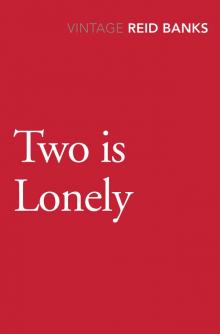 Two Is Lonely
Two Is Lonely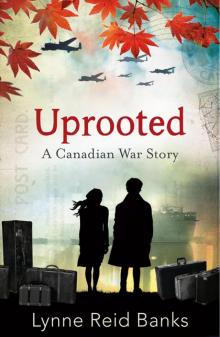 Uprooted - a Canadian War Story
Uprooted - a Canadian War Story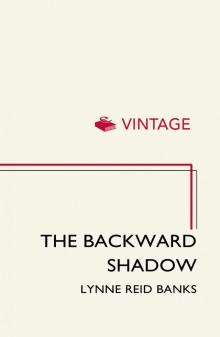 The Backward Shadow
The Backward Shadow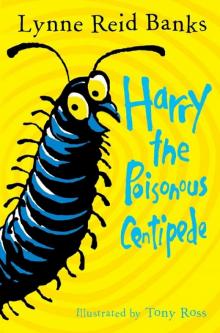 Harry the Poisonous Centipede: A Story to Make You Squirm
Harry the Poisonous Centipede: A Story to Make You Squirm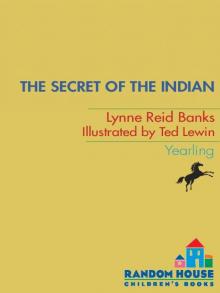 The Secret of the Indian (The Indian in the Cupboard)
The Secret of the Indian (The Indian in the Cupboard)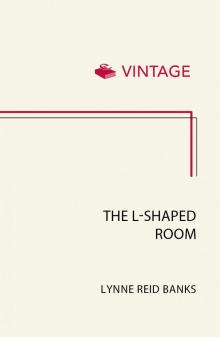 The L-Shaped Room
The L-Shaped Room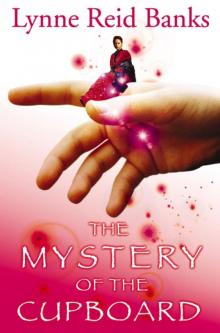 The Mystery of the Cupboard
The Mystery of the Cupboard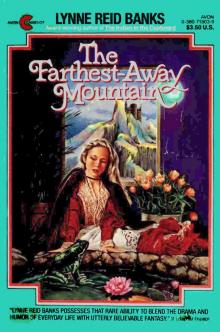 The Farthest-Away Mountain
The Farthest-Away Mountain Harry the Poisonous Centipede Goes to Sea
Harry the Poisonous Centipede Goes to Sea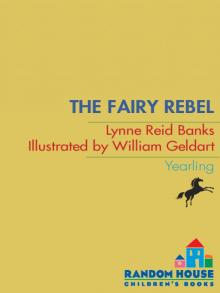 The Fairy Rebel
The Fairy Rebel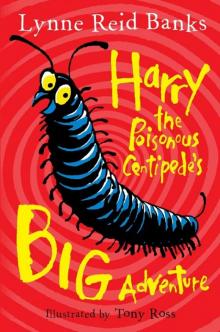 Harry the Poisonous Centipede's Big Adventure: Another Story to Make You Squirm
Harry the Poisonous Centipede's Big Adventure: Another Story to Make You Squirm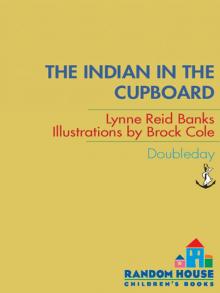 The Indian in the Cupboard
The Indian in the Cupboard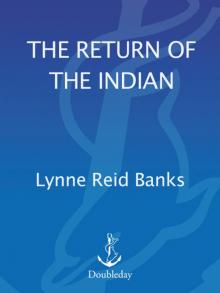 The Return of the Indian
The Return of the Indian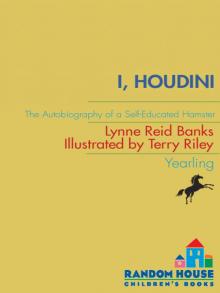 I, Houdini
I, Houdini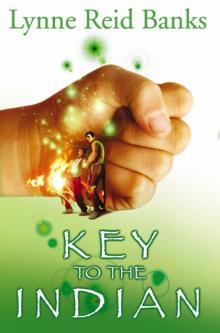 The Key to the Indian
The Key to the Indian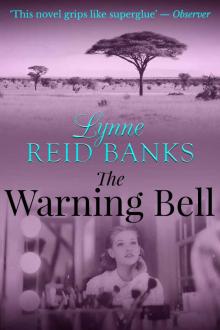 The Warning Bell
The Warning Bell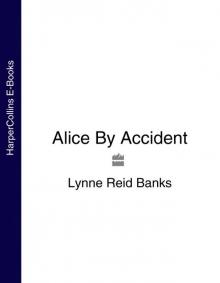 Alice by Accident
Alice by Accident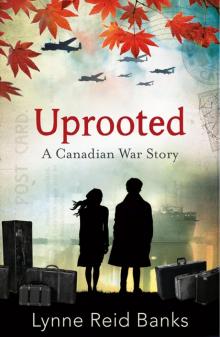 Uprooted
Uprooted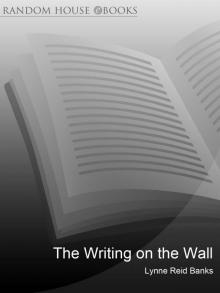 Writing On the Wall
Writing On the Wall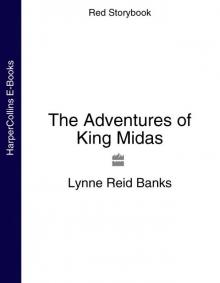 The Adventures of King Midas (Red Storybook)
The Adventures of King Midas (Red Storybook)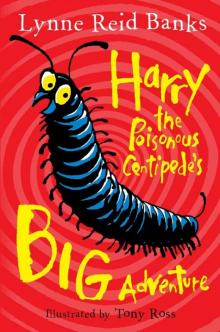 Harry the Poisonous Centipede's Big Adventure
Harry the Poisonous Centipede's Big Adventure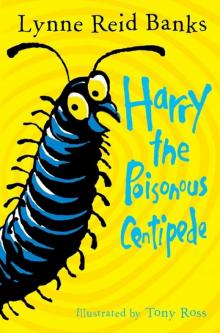 Harry the Poisonous Centipede
Harry the Poisonous Centipede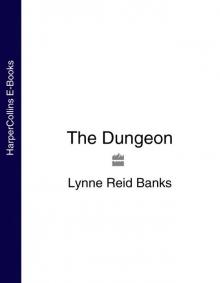 The Dungeon
The Dungeon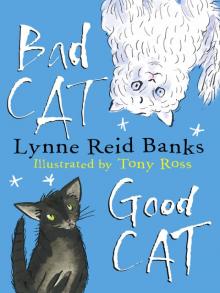 Bad Cat, Good Cat
Bad Cat, Good Cat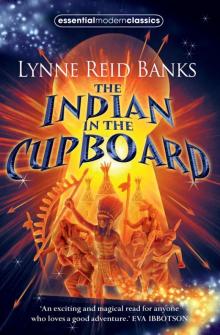 The Indian in the Cupboard (Essential Modern Classics, Book 1)
The Indian in the Cupboard (Essential Modern Classics, Book 1)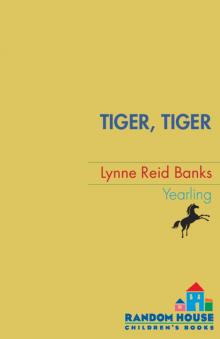 Tiger, Tiger
Tiger, Tiger